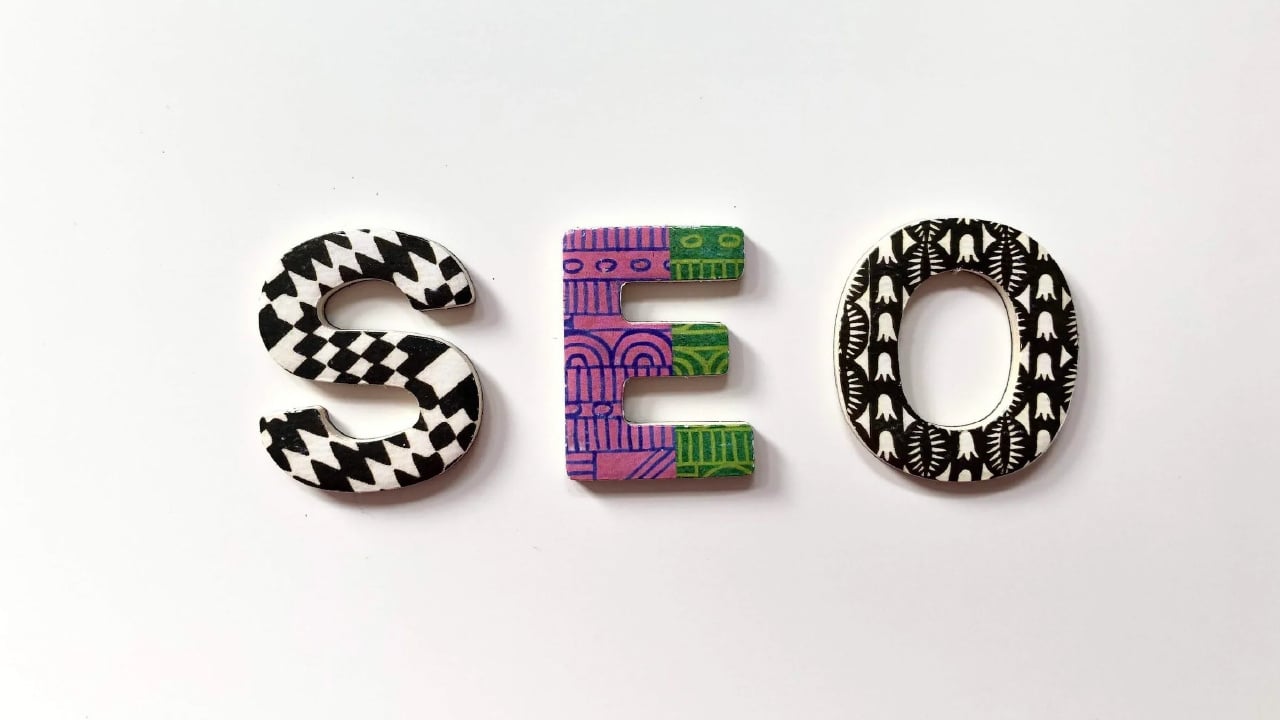
- Blog & Resources
- Blog
- Must-know SEO tips for sustainable businesses
How to be sure that your Earth-conscious organisation stands out in the sustainability conversation
Businesses of all sizes are setting sustainability targets and consumers are increasingly demanding ‘green’ products and services. In this context, effectively showcasing your organisation’s environmental credentials – and getting to the top of search engine listings for keywords linked to sustainability – is fast becoming a B2B marketing key performance indicator (KPI).
It’s an amazing thing that so many businesses have recognised the importance of being green and providing products and services for a greener future - but the volume of businesses vying to be part of the net zero conversation creates a challenge for marketers: if everyone’s talking about their earth friendly policies and green products, how can we stand out?
Search engine optimisation (SEO) is a part of the solution, but in a crowded marketplace, it comes with its own challenges.
At The Pod, we face similar SEO challenges every day; both in our own internal marketing as a green agency and as thoughtful marketing providers for ambitious, Earth-conscious companies.
To help you get your business higher up the Google rankings and attract more customers, we’ve gathered our top tips to be more successful with SEO in the sustainability space.
Embrace keyword research
Don’t try to fight it, SEO is a fundamental part of content marketing – in fact 57% of B2B marketers say that it generates more leads than any of their other marketing initiatives (1). But to rank highly in search results and stand any chance of being found, you need to get your website’s SEO right.
To stand out, you must find a balance between what your audience is searching for, and where your expertise lies. Ask yourself what authority you have to talk about sustainability. Talking about it just because “everyone else is” may help you tick a box, but it won’t help you build a solid online footprint.
Also, remember that SEO doesn’t have to stifle your creativity. You can draft copy that is strong from an SEO point of view, and still unique and original in style and content. Just make sure to conduct an in-depth context and competition analysis as part of your background research, so you can establish the most appropriate keywords and use them in your copy from the start.
This is where keyword research becomes an essential part of any SEO strategy. To add an additional layer to the challenge, when it comes to sustainability, there are so many environmental buzzwords that it can be challenging to identify which ones are relevant to your business and which will most accurately help you to define your product and your purpose.
To begin, start with a simple brainstorming exercise to identify the main themes and keywords that relate to your business. Next, really test them, following our four golden rules. This will make sure they are genuinely relevant to you and will help your prospective customers understand your offering. Then, use keyword research tools, such as SemRush or Google Keyword Planner, to identify the search volume and competition level of each keyword.
Generally speaking, keywords with a high search volume and low difficulty tend to be the best choice, because they’ll allow you to attract the most traffic, without too much effort. However, if you’re in a niche market or are trying to attract a very specific and well-defined audience, the search volume might be irrelevant – you just need to focus on using the exact phrases and keywords that your prospects are using in their searches.
Use more specific search terms
Part of finding the right keywords is being specific. Avoid using generic environmental buzzwords and instead use specific terms that are relevant to your business and industry sector.
For example, if you're a renewable energy consultant, using sector-specific keywords like "offshore wind", "alternative fuels", or "geothermal energy" in dedicated pages may be more relevant to your target audience than broader environmental keywords like “eco-friendly” or “sustainability”. By using more specific keywords, you'll be able to attract customers who are searching for exactly what you offer and are looking for products or services that align with their own values.
It's important to use these keywords naturally and in context, rather than stuffing them into your content. Search engines are becoming increasingly successful at spotting content that has clearly been written for the sole purpose of improving ranking, and can actually penalise web pages where the same keywords is repeated over and over again.
Instead, their algorithms are being optimised to prioritise helpful content that genuinely responds to users’ needs. Also,using keywords only because they have a high search volume will put you up against major players who either already own the space or are specialists in their specific niche.
The sustainability conversation also features a high number of jargon and buzzwords, so it’s also worth keeping in mind how people actually search and what their intentions are. Furthermore, in an area where even insiders sometimes don’t know what the jargon means – for example, just 53% of energy managers say they fully understand the term “net zero”(2) – your audience may not understand you unless you are clear.
In our own keyword research for “net zero”, for example, we found that the search volume was relatively low, and that the best way for clients to find success was to address the topic through social content, thought leadership content, or PPC. Net zero-related phrases with SEO potential included:
-
Carbon neutral vs. net zero
-
Net zero strategy
-
What are net zero emissions?
It may also be useful to consider “long-tail keywords”. These are longer and more specific phrases that potential customers are likely to use when they want to take action, such as make a purchase or take a course. Don’t be put off by the fact that they can generally get less search traffic – they may attract less traffic, but they usually have a higher conversion rate because they're more specific.
Optimise your content
Once you've identified the relevant keywords for your business, it's important to optimise your content by including the keywords in your website copy, blog posts, and meta descriptions. Make sure your content is the right length, helpful to your audience, and fresh. You should also pay attention to the structure of your copy: include several subsections and use titles and subtitles strategically to add keywords where relevant.
Creating valuable content is a key part of any SEO strategy. As a sustainable business, you have a unique opportunity to create content that is both informative and inspiring. For example, you could create blog posts that provide tips on how readers can reduce their carbon footprint, or share success stories about how your business is making a positive impact on the environment.
This is one part of creating informative and engaging content that will help you attract high-quality backlinks to your website – another key factor in Google's ranking algorithm.
Take a holistic approach
Finally – it’s important to remember that SEO is just one part of a successful green marketing strategy. To truly stand out in the crowded sustainability market, it's important to have a holistic approach that includes social media, content marketing and brand positioning.
By creating a strong brand identity that reflects your values and commitment to sustainability, you can build a loyal customer base that will support your business for years to come. In the long term, this approach will also help you stand out, as Google rewards “E-E-A-T”: experience, expertise, authority, and trustworthiness. This may not be something you can build on right away, but over time, this strategy will pay off.
By researching relevant keywords, being specific in your language, optimising your copy, creating valuable content and avoiding jargon, you can improve your chances of ranking higher on search engines and attracting more targeted traffic to your website – even in the crowded sustainability arena.
If you’re looking to find your voice in the crowded sustainability marketplace, The Marketing Pod has the specialists you need to create intelligent, purpose-led campaigns for sustainable brands, net zero leaders and businesses innovating for a low carbon future. To discuss how we can help you boost your SEO, email digital@marketingpod.com

Monia Dal Checco
Need words? You've come to the right place. Our PR and Content Writer Monia has a true love for writing and all the well honed skills you need to effectively position your brand. Plus – she speaks no fewer than four languages, so will never be lost for words.
You might also be interested in…


Why customer trust is your biggest 2026 business bottleneck



 Alexander Costello
Alexander Costello
 Jessica Keynes
Jessica Keynes
 Raven Wheatley-Hawkins
Raven Wheatley-Hawkins






.png)


